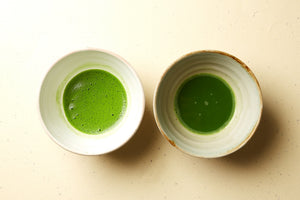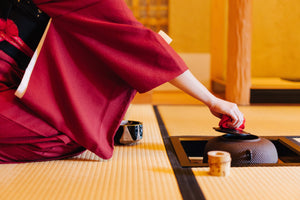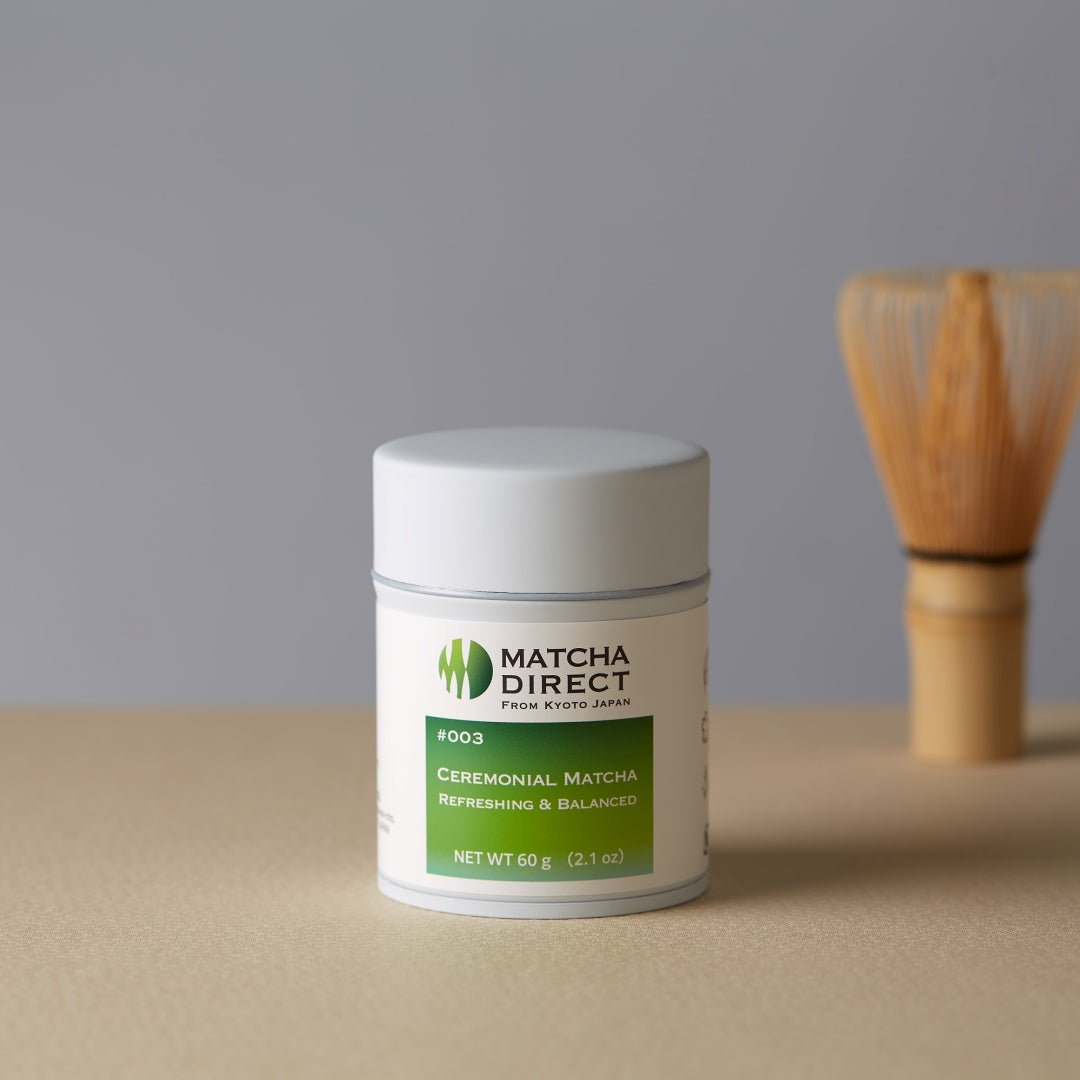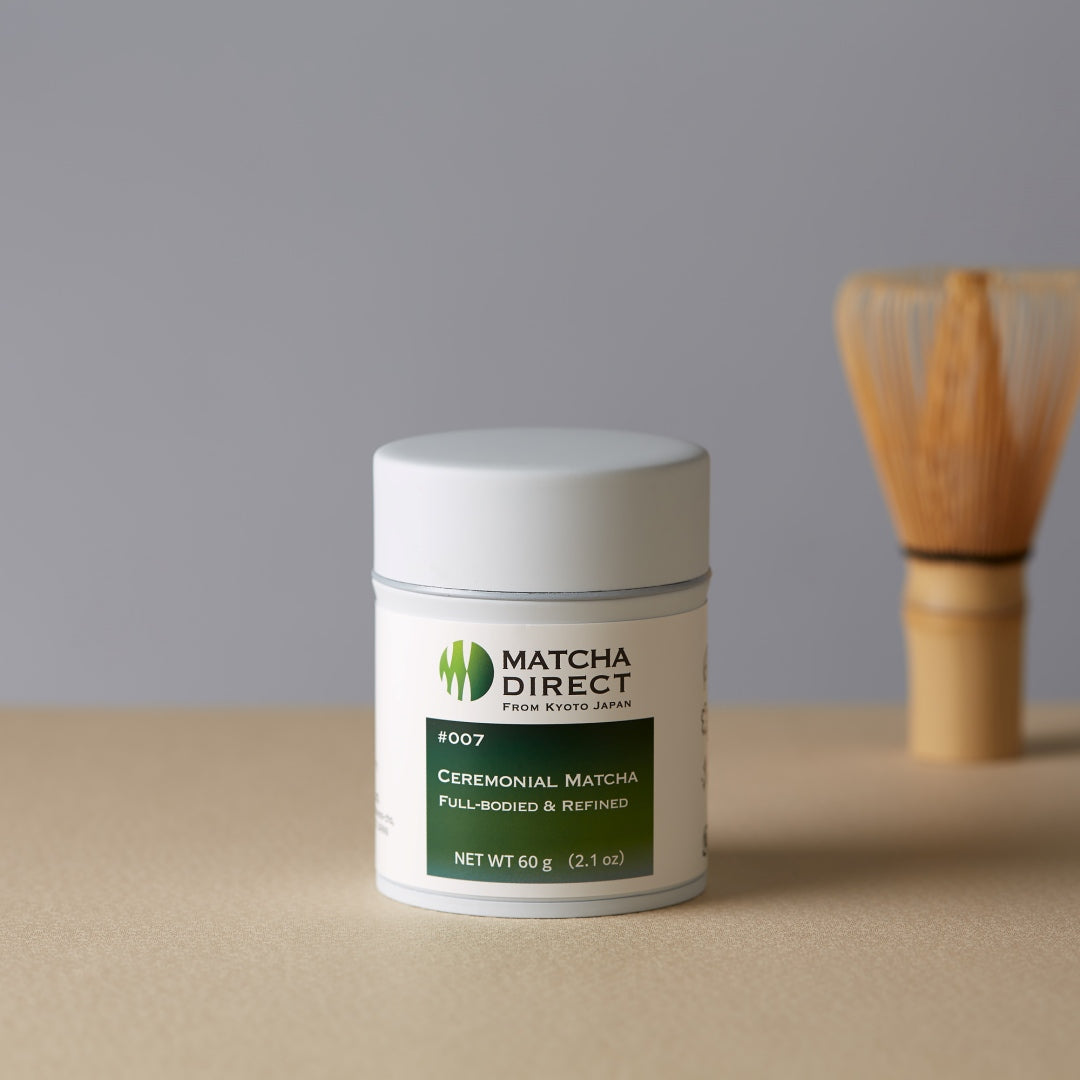The Ideal Water Temperature for Matcha
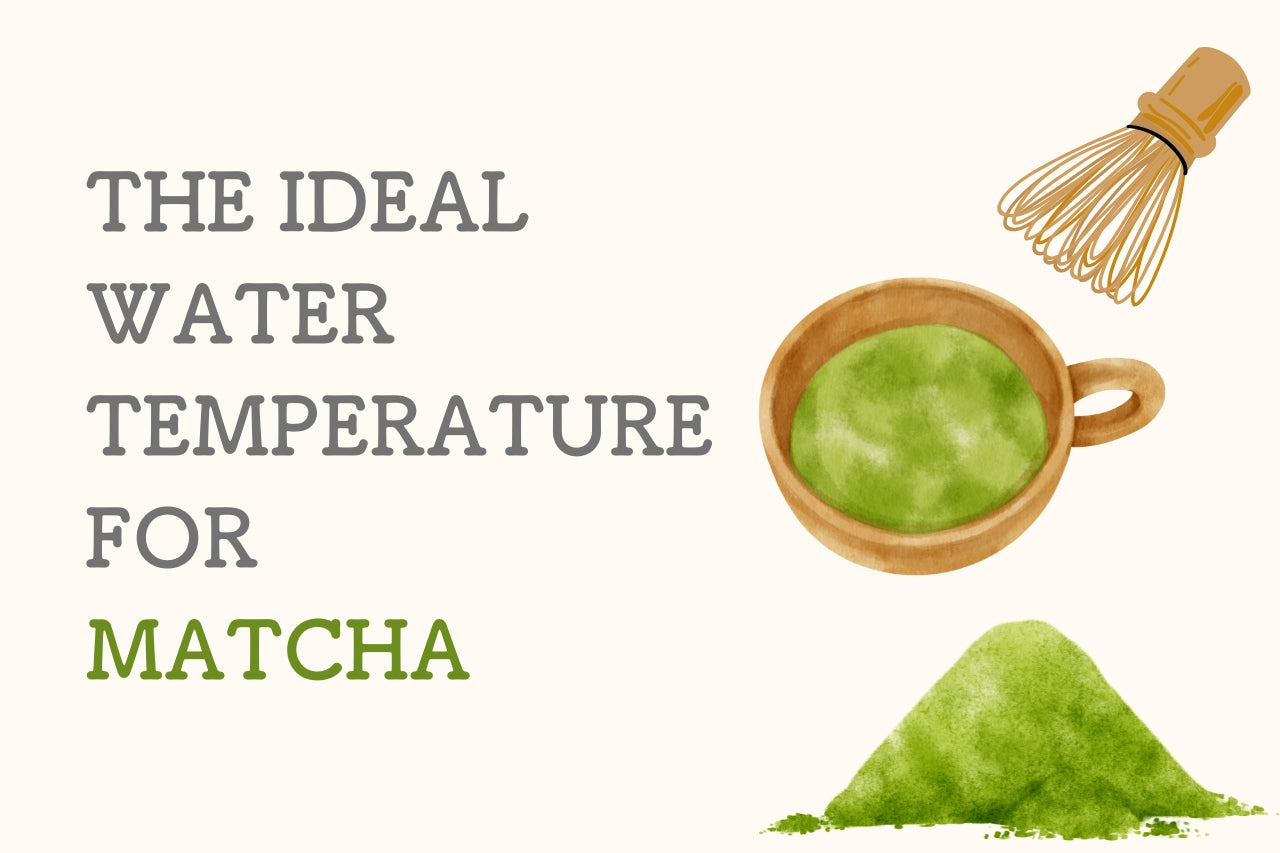
What temperature of hot water do you use when making matcha?
Many of you might not even measure the hot water temperature.
A common practice is to use boiling water like for black tea.
It’s easiest to boil water with an electric kettle and pour it directly into a matcha bowl.
However, there is an optimal water temperature to make delicious matcha.
We’ll explain it clearly based on scientific evidence.
The Key to Delicious Matcha Lies in the Hot Water Temperature
Before discussing matcha, I want to touch a bit on Japanese tea.
In Japan, green tea, including matcha, is the main type of tea produced, but black tea and oolong tea are also made.
Here are rough guidelines for the appropriate hot water temperatures for Japanese tea:
- Gyokuro: Around 50°C
- Sencha: About 70°C-80°C
- Houjicha: About 100°C
- Black tea: About 100°C
For tea where you want to bring out the aroma, use high-temperature water; for those where you want to bring out the umami, use lower-temperature water.
So, what do you think is the optimal hot water temperature for making matcha?
The answer is about 70°C-80°C.
Black tea, the world’s second most consumed beverage after water, is brewed with boiling water at 100°C.
This high water temperature effectively extracts the aroma and bitterness of black tea.
Many people are used to this method, so it’s common to use boiling water for Japanese green tea as well.
So why is 70°C-80°C ideal for matcha?
The Relationship Between Tea and Hot Water Temperature from a Scientific Perspective
Japanese green tea, including matcha, contains three main components.
L-Theanine
A type of amino acid representing umami and sweetness.
Consuming L-theanine produces alpha waves, which bring relaxation effects.
Recent studies highlight its potential to improve sleep quality.
Catechins (Flavanols)
A type of polyphenol representing bitterness and astringency.
Catechins are noted for their antioxidant and antibacterial properties and are of interest in various fields.
Caffeine
An alkaloid with stimulating and diuretic effects.
Energy drinks high in caffeine are popular for their stimulant effects, but individual tolerance varies, so caution is needed.
Decaffeinated or low-caffeine teas are recommended for those concerned.
https://matchadirect.kyoto/products/051-decaf-matcha-60g
https://matchadirect.kyoto/products/052-decaf-matcha-60g
During winter, tea plants produce a lot of L-theanine in their roots.
When L-theanine moves to the leaves and is exposed to sunlight, some components transform into catechins, increasing bitterness.
Matcha and gyokuro are cultivated to retain more L-theanine by shading them from sunlight for a period.
Sencha, however, is grown in sunlight, resulting in higher catechin content than gyokuro and matcha.
L-Theanine is relatively stable and can be extracted at both low and high temperatures.
On the other hand, catechins and caffeine are not extracted well at low temperatures but are quickly extracted at high temperatures.
The Appropriate Hot Water Temperature for Making Matcha
The rich, deep flavor of matcha comes from a balanced extraction of umami and bitterness.
Matcha brewed with near-boiling water at 100°C overpowers the umami of theanine with the bitterness of catechins and caffeine, resulting in a bitter taste.
The ideal hot water temperature for making delicious matcha is 70°C-80°C.
This temperature range best balances the umami, sweetness, bitterness, and astringency of matcha.
For a smooth texture and good froth with a pleasant aroma, paying attention to the hot water temperature is crucial.
Easy Methods to Adjust Hot Water Temperature
How should you cool down boiling water from an electric kettle to the right temperature?
If you have a thermometer, it’s best to measure the water temperature.
However, measuring the water temperature every time can be a hassle.
Here’s a practical method I use to control water temperature.
What You Need
- A measuring cup or milk pitcher (something easy to pour)
How to Adjust Hot Water Temperature
- Boil water.
- Pour the boiling water into the measuring cup or milk pitcher (heat-resistant).
- Put matcha in the matcha bowl during this time.
- Pour the slightly cooled hot water into the matcha bowl and make matcha.
Water boiled with an electric kettle is about 100°C.
Transferring it to an empty heat-resistant container drops the temperature by 5°C-10°C.
Pouring from the electric kettle to the container cools the hot water to around 90°C-95°C. The temperature will further drop with time.
On hot days, the water temperature might not drop much by transferring it once, so in such cases, prepare two containers and transfer the water 2-3 times to cool it sufficiently.
This method provides hot water at the right temperature for making matcha.
Measuring the temperature precisely each time is good, but for daily matcha drinking, this method is recommended. Even if the temperature is slightly higher or lower, high-quality matcha will still taste good.
Conclusion
The key to making delicious matcha is the "amount of matcha," "hot water temperature," and "water amount."
Among these, "hot water temperature" is crucial in determining the taste of the matcha.
Preparing with hot water cooled to 70°C-80°C results in rich, smooth, delicious matcha, so please take the time to adjust the temperature carefully.
I love making and drinking matcha myself, and for this article, I compared matcha made with cold water, matcha made with the ideal temperature of 70°C-80°C, and matcha made with boiling water at 100°C.
Matcha made with cold water doesn't froth well and remains gritty even after thorough whisking. The texture is rough.
Matcha made with boiling water quickly releases aroma and froths well, but the taste is quite bitter.
Matcha made with the ideal temperature has a pleasant aroma and good froth, with a rich and smooth taste.
It made me feel very happy.
If the matcha is too bitter, it might pair well with sweet snacks, or you could make a matcha latte with milk. For those who find matcha bitterness unpleasant, try brewing it at a lower temperature.
Even if the hot water temperature adjustment is slightly off, the health benefits remain as you consume all components of matcha.
Also, high-quality matcha will be delicious regardless of minor mistakes.
Adjust the hot water temperature and matcha amount to find your preferred taste.

